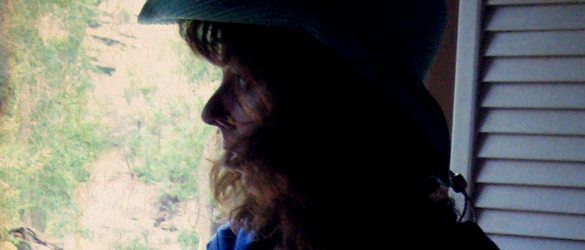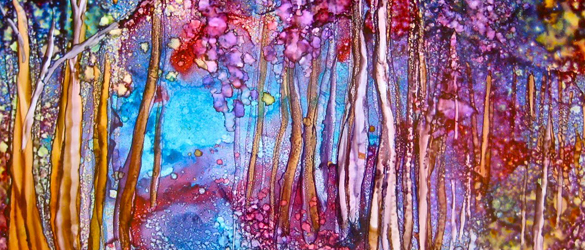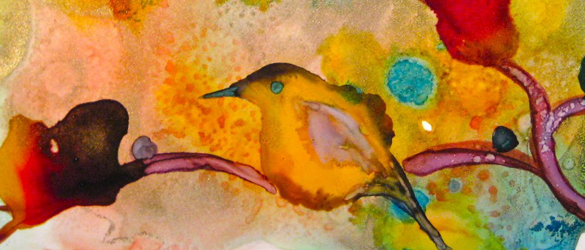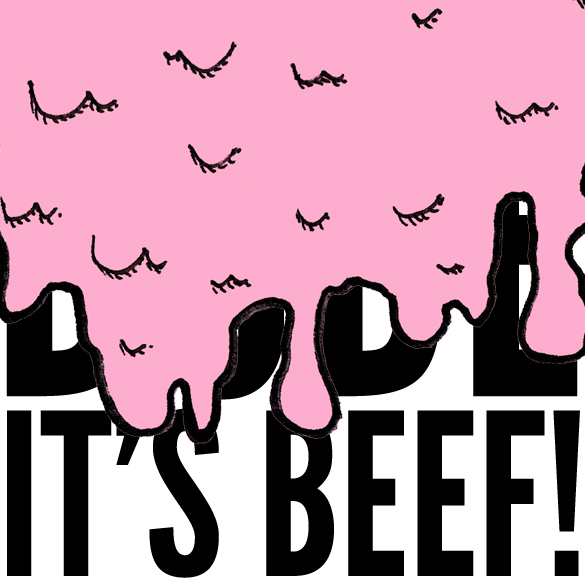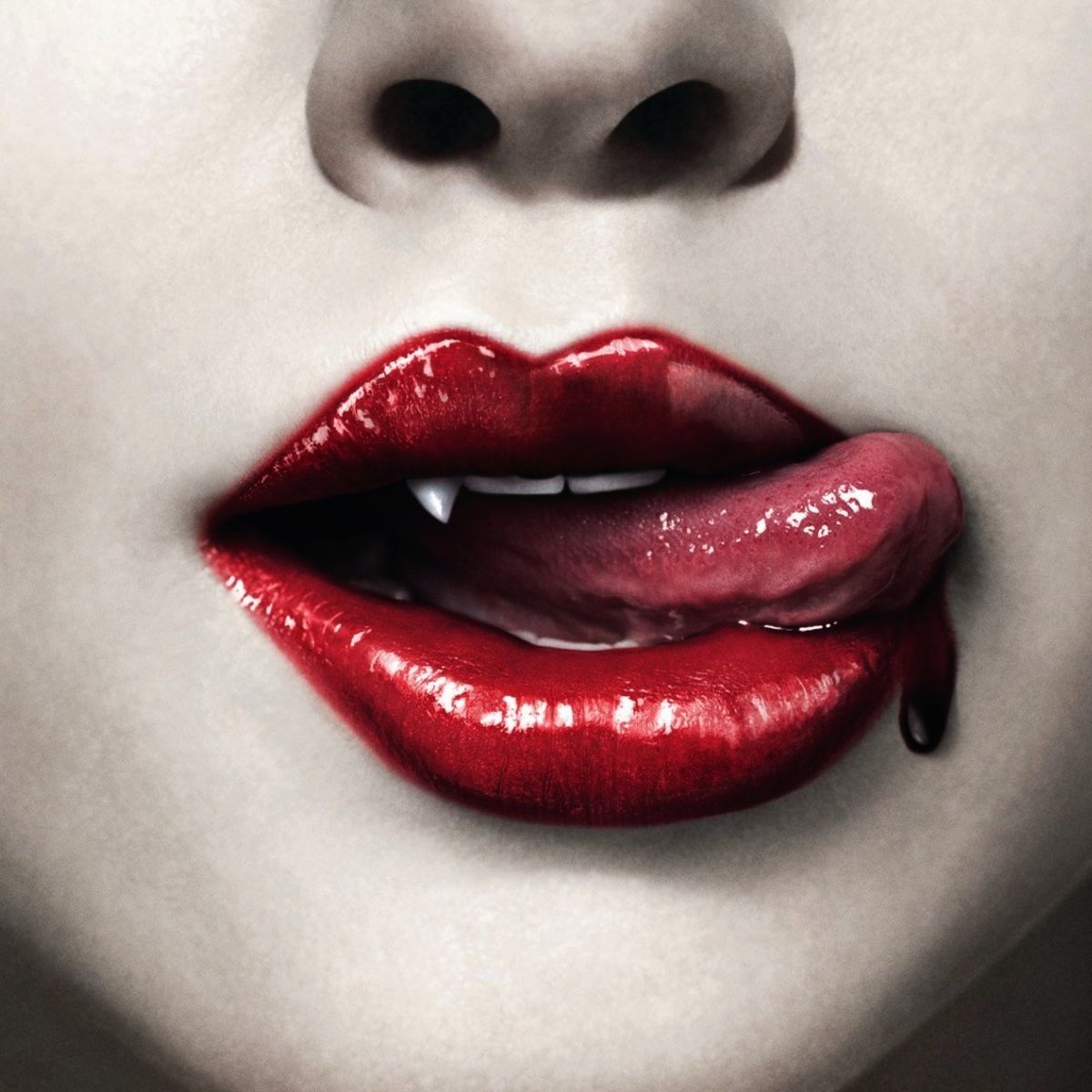“Wendy Videlock was born in a raft in the middle of the Atlantic Ocean. She drifted many a year, and now lives on the Western Slope of the Colorado Rockies with her husband, two children, and their domesticated coyote.” – Nevertheless, Videlock
Born in Ohio, Wendy Videlock now lives in Western Colorado with her husband and two children. She is a Western poet, and teaches in a freelance capacity. She is currently working on a children’s fairy tale in verse. Her poems have appeared in Poetry, Able Muse, Quadrant, Rattapallax, and several other literary journals. Her chapbook, What’s That Supposed to Mean, was published in 2010 by Exot Books. Nevertheless is Videlock’s first full length book of poetry.
Gadfly: When did you first begin writing and why? What about painting?
Wendy Videlock: I’ve always been drawn to anything which excites the imagination. At some point, the writing insisted on itself as a priority.
Gadfly: Have you had any kind of formal training? Do you even think that’s necessary in something like poetry, or is it just as good (better, even) when it’s less institutionalized? Do you think there’s something different about writing without formal training behind it?
WV: I believe art, and by that I mean good and bad art, flourishes both in and outside of formal institutions. I have no MFA [Masters in Fine Arts], am self-driven and self-lost, and have nobody to blame but myself. I should say though, that I’ve had a few extraordinary and ruthless mentors over the years. This taught me above all, the importance of one’s own purpose, and the great joy (and horror) of becoming one’s own best critic.
Gadfly: What is your creative process like? Do you scribble lines down as they come or do you sit at a desk and edit over and over before a poem is “finished”?
WV: In general I am at the mercy of the poem, which seems to arrive of its own volition. I try to stay available until it leaves me alone.
Gadfly: I notice that a lot of your poems combine elements of different cultures. What was your inspiration behind that?
WV: Well, I love myth and magic and storytelling, and I love all manner of esoterica, and I love people, when I don’t hate them, that is, so things get absorbed.
Gadfly: One of the things that I love about your poetry is that it’s very accessible and down to earth. Where does that come from? Is there a particular audience you are trying to reach?
WV: Well, I’ve also been told the work is obscure and metaphysical, so I’m not sure, really. I’m not aware of a readership while writing a poem, but I suppose during revision, I’m likely seeking to evoke a response, though I’m not really aware of it at the time. Well, that’s not true: a poem that is moving in a humorous direction, or a poem that seems to want to take particular aim at a subject or person….with those I become keenly aware of precision. I believe in the clean, midnight assassination, and minimal collateral damage. I’m speaking owls, of course…
Gadfly: Your poems are very entertaining. They’re short and witty, but deceptively so, I think. There’s a lot going on in each one of them. So, why talk about “the neighbor’s effing clothesline”?
WV: Blind spots are where the moonlight gets in?
Gadfly: Some of your poems take on a variety of viewpoints. Where do they come from?
WV: I’ve recently written a poem which begins:
The child rushing up the road,
in his pocket a dollar, a feather,
and a couple of toads,
has turned around in the deepening blue
just long enough for you to notice
that he is you.
Gadfly: You mess around a bit with traditional forms. I spotted a few haikus and sonnets in there. What is your take on the traditional mixed with the modern?
WV: I very much like mixes, blends, hybrids, and of course I’m very much taken by the di, tri, and tetrameters. I’m not much interested in a poem which has no rhythmical backbone or palpable interest in the line. I do believe more than ever that modern poets should study the meters; only then, should they elect to write free verse, have they made an actual choice, rather than rely on the default. I’m not sure how on earth poets ever got the idea that knowledge is dangerous to their art.
Gadfly: The first poem in the book that really grabbed me was “Of Promiscuity”, but that isn’t the only poem that talks about religion. What about religion and spirituality did you want to convey or address?
WV: Well, I think this poem touches on wanderlust, in metaphysical matters and otherwise. It might also speak to the general lonesomeness of the fiercely independent nature, the inability to sign on the dotted line, so to speak. I’ve noticed over the years that this is a poem women really seem to enjoy, and I’m grateful for that. This idea of ‘belonging’ to someone, (or something) is desirable, and entirely undesirable. The poem actually arose from a line from Tim Murphy: There is no end to the wanderer’s sorrow.
Gadfly: Some of your poems seem like they are criticizing the modern way of things. In poems like “Change” and “A Word on Verbs,” you don’t mess around. What are you calling attention to in these poems?
WV: Indeed, yes. I suppose I’m calling attention to the elephant in the room.
Gadfly: Do you think art has a responsibility to address cultural and political issues?
WV: I’m not sure any serious artist can avoid it.
Gadfly: I took a look at some of your artwork and found it all really beautiful, but the cover art for your book is not one of your own paintings. What made you decide to do that?
WV: I fell in love with the work of Virginia Peck, and in particular with that loose-limbed coyote loping casually through a mysterious text. Nothing could say Hermes better than that. I was grateful she agreed to let us use it, and grateful my publisher did not object.
Gadfly: Do you view your poetry and your paintings as you two separate art forms?
WV: Joni Mitchell once said something about writing, painting and crop rotation …my experience is rather like that. The painting is a great distraction, is refreshing and invigorating, but most of all it renews and informs my devotion to poetry.
Gadfly: Nevertheless is your first full length book of poetry. How did it come about?
WV: I sent my manuscript to the editor at Able Muse Press. Then I sent him one hundred thousand dollars and a series of pornographic photos.
Gadfly: What is the process for writing a book like this? What was your favorite part of it?
WV: My favorite part was letting it go. I’d been rearranging it and revising it for too many years.
Gadfly: Do you have a favorite poem from the book?
WV: Not really, though I’m fond of a few of them, and emotionally attached to a few more.
Gadfly: Are there any poets or writers that have influenced your work?
WV: Oh, of course, countless numbers of them, from Mother Goose to The Brothers Grimm to Blake, and Emily, and Yeats to Kipling to Gary Snyder to the noiseless, patient spider.
Gadfly: Is there anything in particular you want readers to take away from your poetry?
WV: That’s a good question. I suppose a couple of chuckles. Maybe a touch of wonder. A moment or two of surprise. That would please me.
That, and an inexplicable desire for a good stiff drink.
Artwork by Wendy Videlock. To view more of her art, click HERE.
